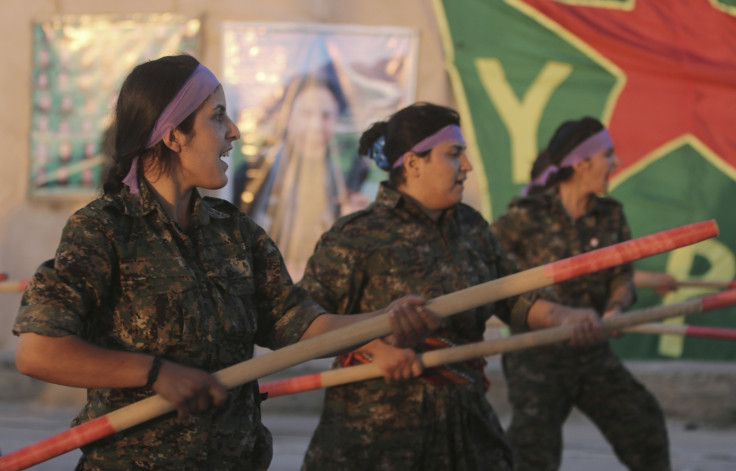Heroine of Kobani: Kurdish Female Fighter Rehana 'Kills 100 Isis Jihadis' Single-handedly

A Kurdish female fighter has been hailed on social media for allegedly killing over 100 Isis (Islamic State) militants single-handed in the battle for Kobani.
The fighter, known only as Rehana, was named in a tweet which has already been shared thousands of times since it was initially sent on 13 October.
Rehana has killed more than a hundred #ISIS terrorists in #Kobane . RT and make her famous for her bravery pic.twitter.com/YvmfXMpuu1
— Pawan Durani (@PawanDurani) October 13, 2014However some sources are reporting that Rehana has been killed by Isis, with one graphic picture purportedly showing her beheading.
Neither the news of Rehana's death, nor the number of people she has killed, can be independently verified.
Several Kurdish women have been lionised for the bravery and determination they have shown in attacking Isis.
The women belong to the Yekineyen Parastina Jin, or Women Protection Units (YPJ). The female contingent earned international renowned after one of its fighters blew herself up in Kobani killing several Islamic State (also known as Isis) militants.
Dilar Gencxemis, known by her nom de guerre Arin Mirkan, was a 20-year-old mother of two who detonated herself as she ran towards Isis fighters, killing as many as 23 of them.
Kurdish resistance is increasingly relying on its female fighters to save the town on what appears as a desperate fight for survival. According to various estimates, female fighters make up between 7,000 and 10,000 of the Kurdish forces fighting in Syria.
The YPJ is an all-female, independent militia which at the frontline embrace arms along with their male "comrades" of the People's Protection Units.
Linked to the Marxist-inspired Kurdistan Workers' Party (PKK), an outlawed organisation blacklisted in the US and the EU who fought the Turkish army for 30 years and caused 40,000 deaths, the YPG is desperately outnumbered and outgunned by Isis, which boasts an arsenal of US weapons looted from the Iraqi army in Mosul.
© Copyright IBTimes 2025. All rights reserved.




















